Ecuador Health:
Staying well on your trip!
Ecuador health issues could potentially ruin your trip. Don't worry! You will probably be just fine, but there are some things to watch out for...
Water
When it comes to your Ecuador health, water is probably the biggest factor. Tap water in Ecuador is not safe for foreigners to drink - it's not really safe for Ecuadorians either. Much of the water has not be purified and some that has is later mixed with dirty water (this is what happens in Tena). So it's not worth taking a chance.
Note: Many places (like Cuenca and some areas of Quito) claim to have potable tap water. But it's better to be safe than sorry. Here's a recent test done on Cuenca's water...
The water can contain various parasites. Many see immediate effects of these bugs; vomiting, diarrhea, etc. Others don't seem to be bothered as much and may only feel extra tired.
It's a good idea to get checked for parasites before leaving the country. The tests are simple and require small stool and urine samples. Doesn't sound like fun? I know, but it's much worse to have these tests done back home. I'm speaking from experience here. Ecuador is so used to these problems that testing for them is routine. Back home they have to do multiple tests and it may take weeks for the results.
Avoid dirty water in the follow situations:
- Ask for bottled drinking water
- Don't get water in your mouth while in the shower
- Use purified water to brush you teeth
- Avoid ice that may be made from tap water
- Don't use wet glasses at restaurants (they want to assure you that they have cleaned the glasses by setting them on the table wet, but that water is probably tap water.)
Ecuadorians are super hospitable and often want to offer you something to drink. I have sat in a person's kitchen and watched as she filled her blender with lemons and tap water to make me a drink. I accepted the lemonade, but went straight home and started to take parasite remedies right away.
If You're Living in Ecuador
If you're living in Ecuador is a good idea to be tested every six months. Some take the medicine prescribed for parasites every six months just in case, and don't bother getting tested. But it is a good idea to get the test and make sure you're taking the right stuff for the bug you've got.
Many communities in Ecuador sell large five gallon jugs of purified water. They deliver right to your house and cost right around $1.50. So it's a great option if you're living in Ecuador.
My routine: I personally take some KILOL (grapefruit seed extract) in water on a regular basis in a effort to kill off parasites before they reproduce. NOTE: You can buy grapefruit seed extract in a highly concentrated form or in tablets by NutriBiotics in the US or online.
One other water issue comes from swimming or showering in dirty river water. As kids we went to the river every day. We ended up getting "hongos" or fungus on our skin. There are creams available for this fungus which shows up like white patches on the skin. It's also important to shower well after being in the rivers.
Food
Another Ecuador health threat...food!
Under-cooked food in Ecuador, as anywhere, can be problematic. Watch your meat.
Ask about ingredients, some may be offensive to you (this is more common in restaurants that cater to the locals - not so much in touristy places). And restaurants will usually try to accommodate a request if you can't eat something. One thing I've run across is dried blood in soup. If that is offensive to you, as it is to me, be sure before you eat.
Raw fruits and veggies can also pose a problem. Many Ecuadorians just rinse things in that dirty water we talked about above. You can get sick.
When we moved to Ecuador, we were specifically warned about strawberries, because they could carry trichinosis due to fertilizers made from pig poo. I do eat strawberries, but I wash them extra good.
If you can prepare you're own food, you can buy KILOL, which is a grapefruit seed extract based cleanser for food (you can also make a bleach and water mix). You soak your fruits and veggies in it and they are good to eat.
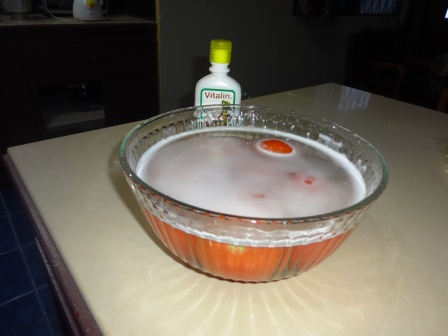 Soaking tomatoes before eating.
Soaking tomatoes before eating.If at a restaurant, avoid fresh salads (yes they LOOK delicious; it's not worth it) and other uncooked fruit and veggies. Fruits that are peeled first are usually ok. But not 100% of the time. Fruit juice has never caused me a problem personally, but it certainly does have the potential to make you sick.
Note: More and more restaurants, especially in high tourist areas, are careful about the way they prepare food. Trust your gut...but a clean exterior does not always mean a clean kitchen.
Be careful with street vendors. Again, I've eaten it and not been sick. But not all street vendors are created equal. Watch what they do when handling the food and then handling money. Do they wash their hands? Are they able to handle the food without touching it? Some are very conscientious, others are clueless.
A natural treatment for food poisoning: If you are afraid you've eaten contaminated food and aren't feeling well you can take carbon tablets. They are available at natural product stores throughout Ecuador (ask for "carbón activado"). I take two when my stomach is upset and usually feel better within a few hours. If symptoms persist, you may want to see a doctor.
Altitude
When traveling to the mountains, be aware of altitude sickness. Especially if you fly directly to Quito, which is about 9,000 ft above sea level, you might not feel too great for a few days until you get used to the altitude. There are over the counter meds for this, which may be helpful, but laying low for a few days and resting is usually the best remedy.
An Ecuador health tip from my friend Toni: Here is a Ecuador health tip for those who want more energy at high altitudes.
Drink Canela (cinnamon) and Panela (unrefined cane sugar) tea when in Quito and at other high Andean altitudes. This tea helps combat altitude problems. This is a simple remedy for altitude sickness.
Ecuador Health on the Bus
Thought you were done getting car sick? The crazy driving, ever changing altitude, and winding roads of Ecuador could prove you wrong. It's not a bad idea to bring a bag with just in case. Or in an emergency shout, "Funda!" and the bus assistant will get you one.
I have taken Mareol, which is available at pharmacies and most bus terminals in Ecuador. It pretty much puts you to sleep for the journey so you don't get car sick. Can be handy, but be careful especially if you are traveling alone.
I also like to bring suckers or hard candy to suck on. It can keep my tummy calm for just a little bit longer.
Mosquitoes
There are several mosquito borne illnesses in Ecuador. Dengue fever, malaria, and yellow fever. For the most part you will only come in contact with this on the coast and deep in the jungle. Mosquito nets are common for sleeping in the these areas. And some good repellent is a must. When there are outbreaks it is widespread news, so you can choose where to go and avoid the most affected areas.
If you are traveling deep into the jungle, consider getting a yellow fever vaccine.
In the jungle, there is a large fly that bites and lays eggs under the skin. A worm develops called a "tupe". A painful, zit-like spot can indicate a tupe. You can get them removed by a doctor who will open the area and remove the worm. The Ecuadorians have lots of home remedies like covering the area with petroleum jelly or blowing cigarette smoke at it. I actually had one of these years ago on the back of my leg, but once in 13 years isn't bad. :)
Worried?
There's no need to be overly worried about these Ecuador health issues. Just take the above precautions and your Ecuador health will be great! Many spend long periods of time in Ecuador and never have a problem.
You may also enjoy these pages...
Home › Travel to Ecuador › Health in Ecuador
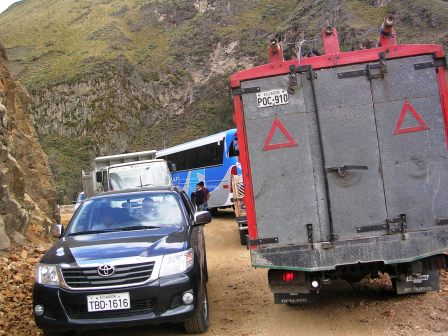
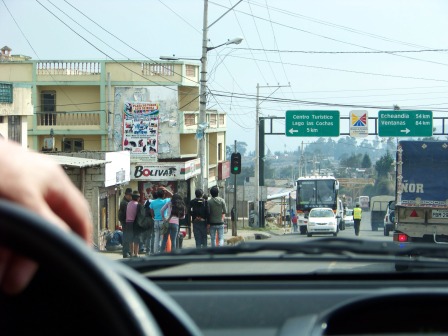
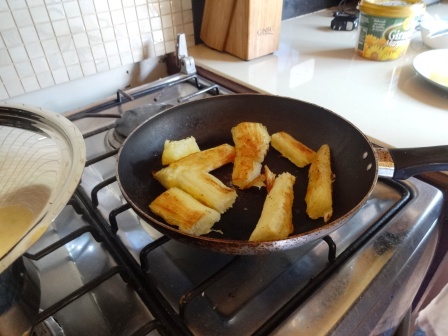



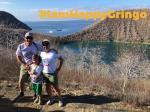

Comments
Have your say about what you just read! Leave me a comment in the box below.